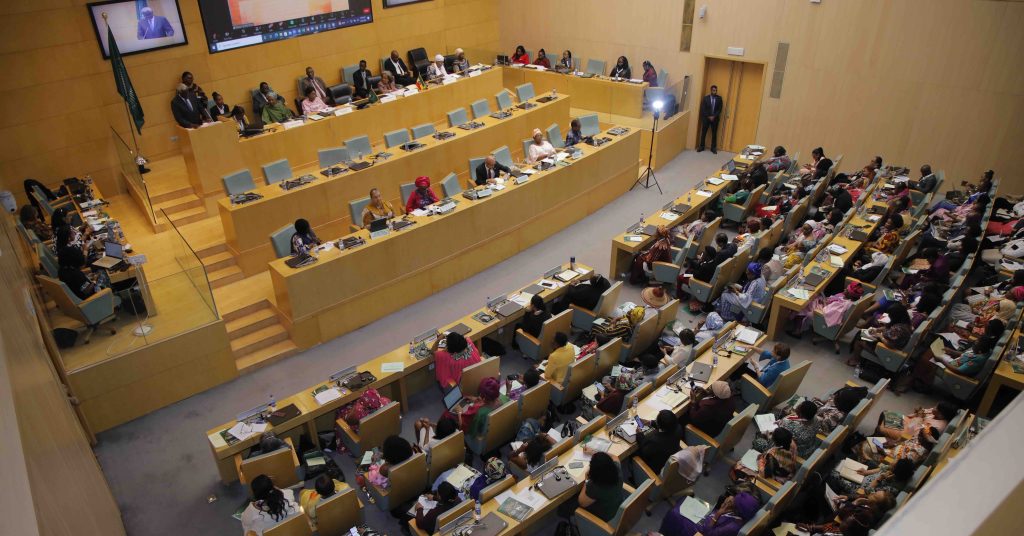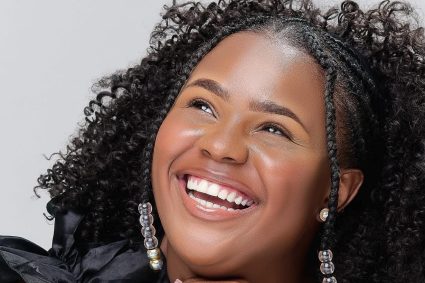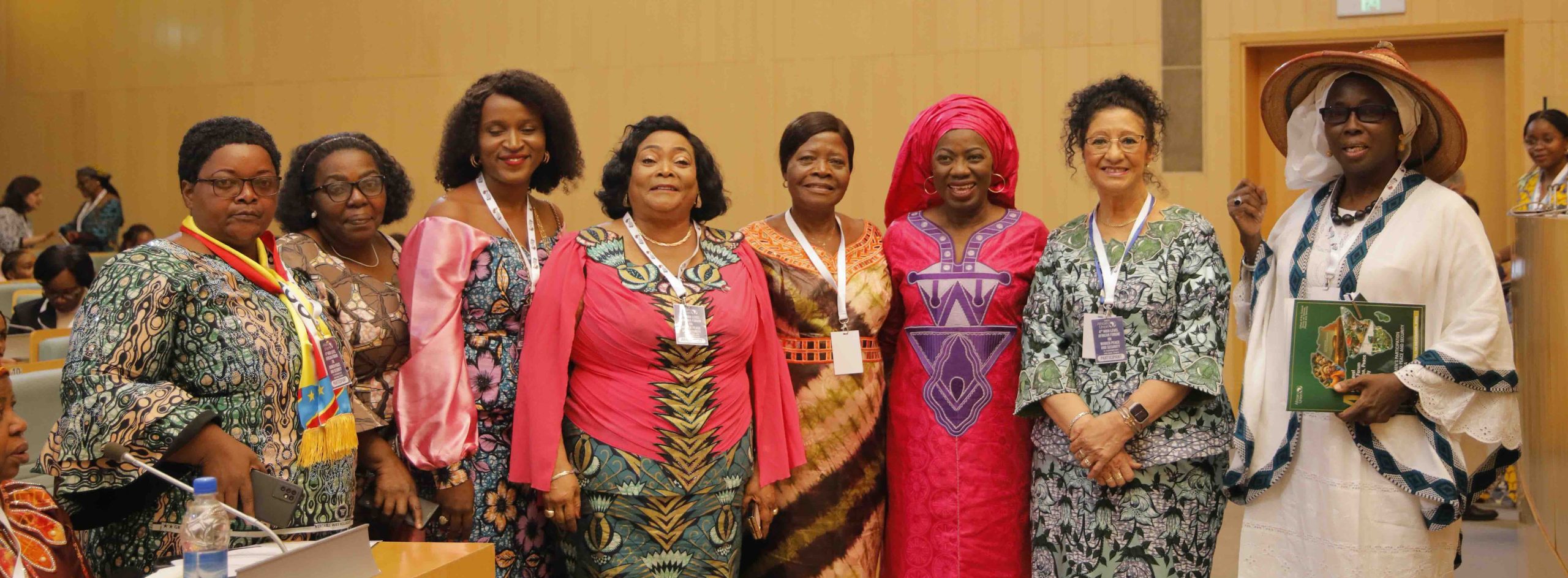
Emphasizing the active involvement and leadership of women in peace processes goes beyond a request from African women to be part of discussions for the sake of inclusion or as an assertion of their inherent right to contribute to shaping the vision of Africa. It also acknowledges the importance of both men and women comprehending the repercussions of their absence in safeguarding lasting peace on our continent
Women have historically played significant roles in peacebuilding efforts in Africa, often at the grassroots level, where they have demonstrated their ability to bring communities together, promote dialogue, and address the root causes of conflicts. Their unique perspectives and experiences offer valuable insights into conflict prevention and resolution.
Several African and global policies and frameworks highlights the vital link between women’s empowerment and peace and security by advocating for their increased participation in conflict prevention, resolution, and post-conflict reconstruction. Nevertheless, women continue to represent only a minority among peace negotiators, envoys, mediators, and peacekeepers. Despite the progress made in establishing implementation frameworks, significant gaps persist between the envisioned provisions and the present circumstances.
During the recently concluded 4th High-Level Africa Forum on Women, Peace and Security, women from various parts of the continent gathered in Addis-Ababa for a two-day conference. The purpose was to contemplate dynamic and innovative approaches to boost women’s involvement in peace processes. Additionally, the conference aimed to deliberate on ways to reinforce and bolster women’s peacebuilding networks, particularly in nations facing political crises.
A comprehensive examination of barriers was undertaken concerning the enduring marginalization of women in de-escalation, conflict prevention, and resolution, even 23 years after the adoption of UNSCR1325. These barriers include a broader and more deeply ingrained resistance to women’s participation, limitations within the existing framework of peace processes, isolated approaches that primarily focus on women’s security in conflict situations, and a failure to recognize the continuum of violence that women face in both peace and conflict contexts. Additionally, emerging challenges such as digital violence against women and the lack of coordination among institutions working on the Women, Peace, and Security (WPS) Agenda further complicate the monitoring of progress, the measurement of change, and the establishment of consensus regarding the ultimate objectives of the WPS Agenda.
H.E. Sahle Zewde-Worke, President of the Federal Democratic Republic of Ethiopia, emphasized that as we approach the 25th anniversary of the adoption of UNSCR1325, the existing gap remains substantial. A lasting peace process is unattainable without the inclusion of women. The world is currently in crisis, and the principles of multilateralism are at risk, with double standards seemingly becoming the norm. Humanitarian assistance is regressing due to political decisions. Africa is not immune to these challenges, and unless we actively participate, the consequences will impact us as well. The security threats in the Sahel, the Lake Chad Basin, East Africa, and within Ethiopia itself underscore the urgent need for the inclusion and leadership of women in achieving effective resolutions. She concluded by asserting that African women must share their stories because if they don’t, no one else will.
H.E. Moussa Faki Mahamat, Chairperson of the African Union Commission, reiterated the African Union’s firm commitment to advancing the Women, Peace and Security Agenda in alignment with the United Nations Security Council Resolution 1325 on Women, Peace, and Security. This commitment is evident through decisions made by the Peace and Security Council, the establishment of mechanisms like the Panel of the Wise with full gender parity, Femwise, the Network of African Women in Conflict Prevention and Mediation, and the AWLN Network, co-established by the Office of the Envoy on Women in Peace and Security, among other initiatives. The increasing number of Member States with Regional and National Action Plans to monitor and implement UN Security Council Resolution 1325 reflects an improving policy environment supporting the inclusion and participation of women in peace and security. While acknowledging significant achievements in ensuring equal participation for women in peace and security matters, he emphasized that more needs to be done.
In his address he asked African Women’s solidarity to the Women and Children of Palestine.
H.E Ellen Johnson Sirleaf, Former President of Liberia and Patron of AWLN, emphasized that a crisis is currently affecting numerous regions globally, and in many instances, global structures and leaders have not met the challenges adequately. The ongoing power imbalance observed in the Security Council, along with the use of veto power, has led to the underutilization or increasing disregard for established tools in peace-making, peacebuilding, and peacekeeping. Emphasizing the necessity for change, she called for a new collective security vision that addresses a broader spectrum of risks, including the triple planetary crisis and deepening social and economic inequalities. Furthermore, she reiterated that women should no longer be in a position of supplication, pleading for inclusion in these crucial processes.
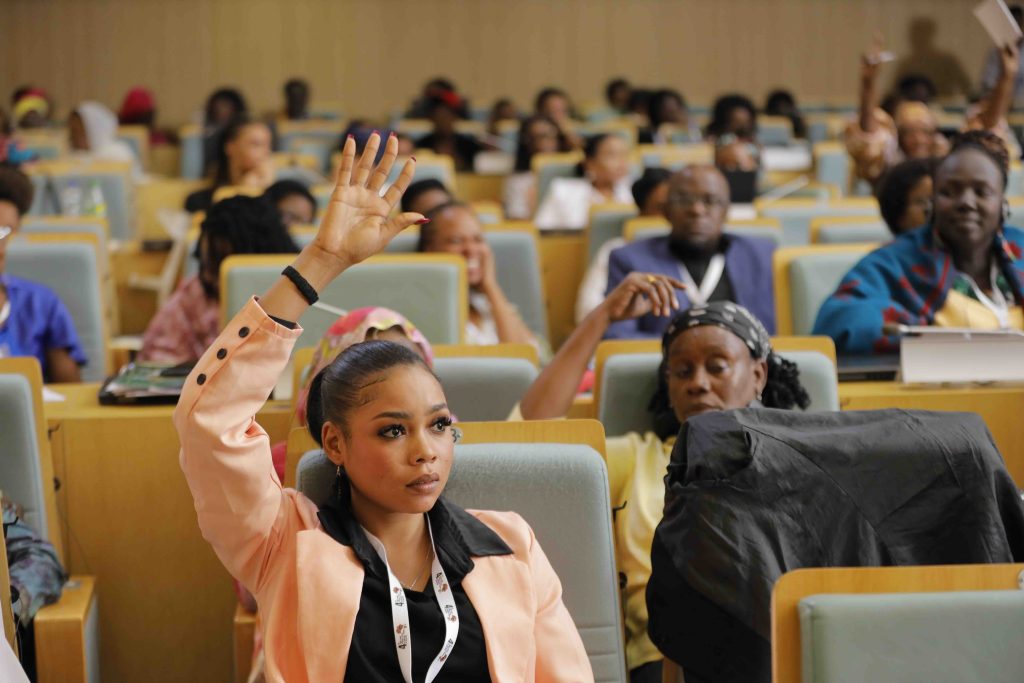
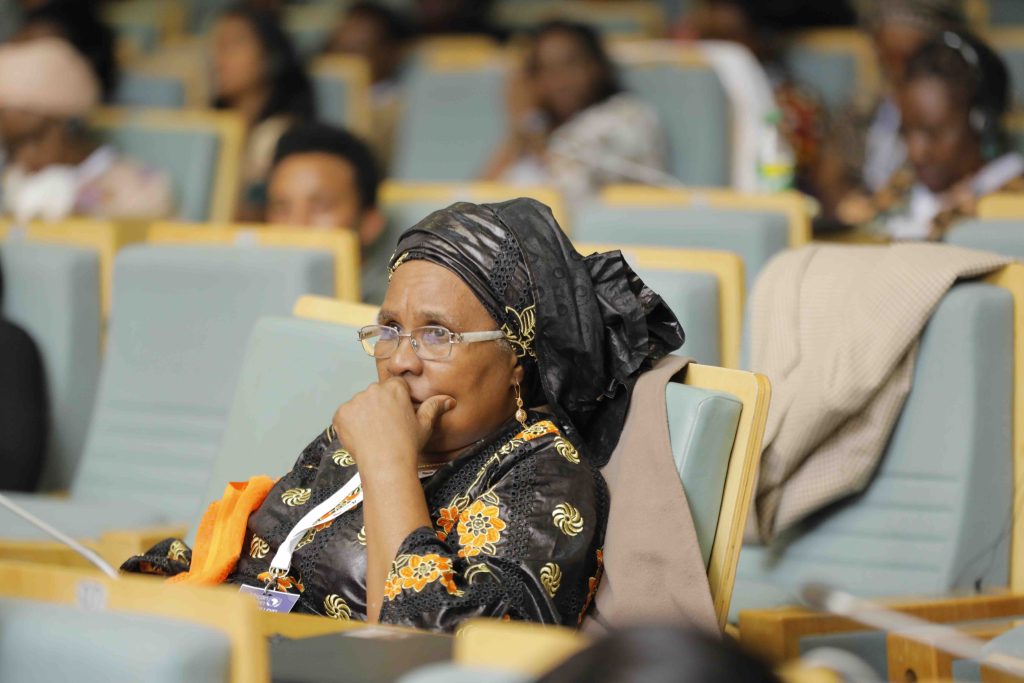
H .E Bineta Diop, African Union Commission, Special Envoy on Women, Peace and Security emphasized that the current peace and security challenges facing our continent, such as the rise in military coups, insurgency, terrorism, and political crises, highlight the ineffectiveness of our existing conflict prevention measures. She strongly believes that this inadequacy is, in part, due to the exclusion of women and gender perspectives in conflict prevention strategies. Additionally, she urged leaders to implement measures ensuring the success of elections in the Democratic Republic of Congo (DRC), with a specific focus on including and protecting women from any form of electoral-related violence. She called for granting a seat in the ongoing efforts to achieve lasting peace in Sudan to the women of Sudan, who are disproportionately affected by the crises and are actively advocating for peace. Finally, she advocated for lifting the sanctions in Niger, acknowledging that these sanctions have contributed to the worsening situation for women in the region.
H.E. Catherine Samba-Panza, Former President of the Central African Republic, emphasised on the need for solidarity among women’s movements to address socio-political crises and armed conflicts that are causing destruction and suffering for women and girls. African women in conflict zones face immense challenges but take initiatives for reconciliation and reconstruction. However, they often lack support and struggle to collaborate effectively. The joint solidarity mission strategy by UN Women and the African Union is an effective approach to amplify women’s voices and concerns on important platforms, ensuring gender perspectives are integrated into political dialogue and peace processes. This forum provides an opportunity to showcase collaborative efforts and elevate women’s leadership and participation.
In mentoring the next generation of women leaders and enhancing practical skills to influence change and shape the peace and security landscape, H.E. Dr. Joyce Hilda Banda, Former President of the Republic of Malawi and Member of the SADC Panel of Elders, expressed deep regret over the noticeable absence of women at the peace table. She lamented this absence despite the persistent calls and advocacy from women to rightfully claim their place. It is noteworthy that women, who often endure victimization and abuse during conflicts, are the ones seeking representation. She emphasized the need for women leaders to persist in mobilizing and working together, urging them to appoint fellow women to positions of leadership.
The two-day event brought together women from various parts of the continent, providing a platform for them to exchange valuable insights and practical strategies. The focus was on driving tangible progress towards the full integration of women in every facet of peace processes. [Source: African Union]
